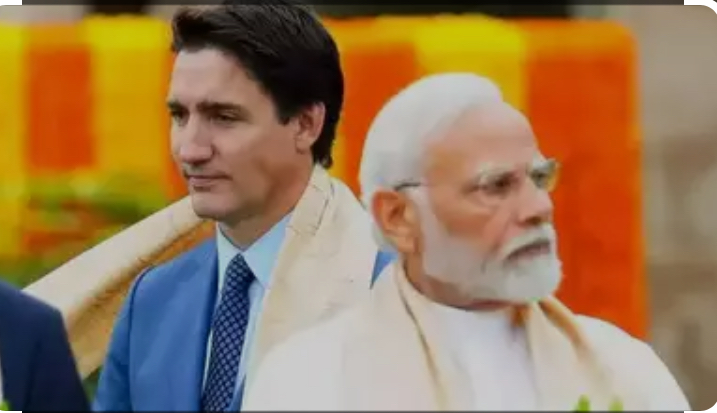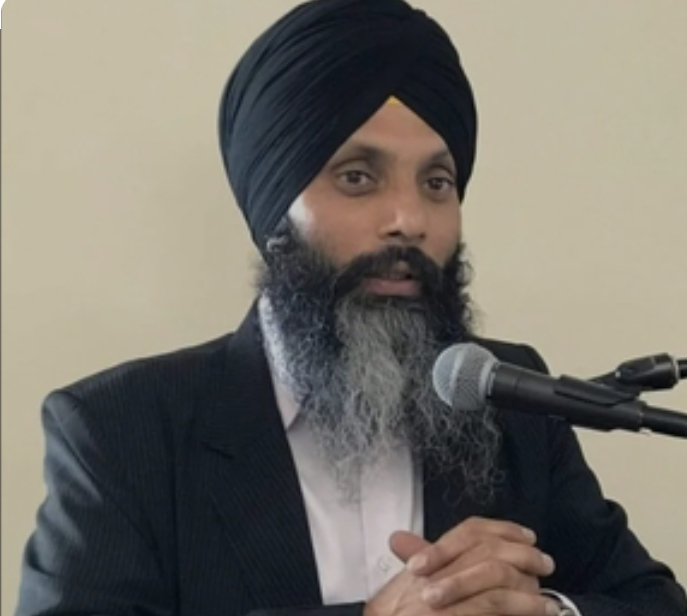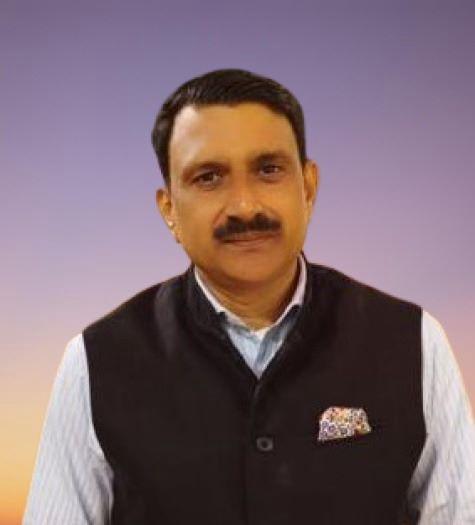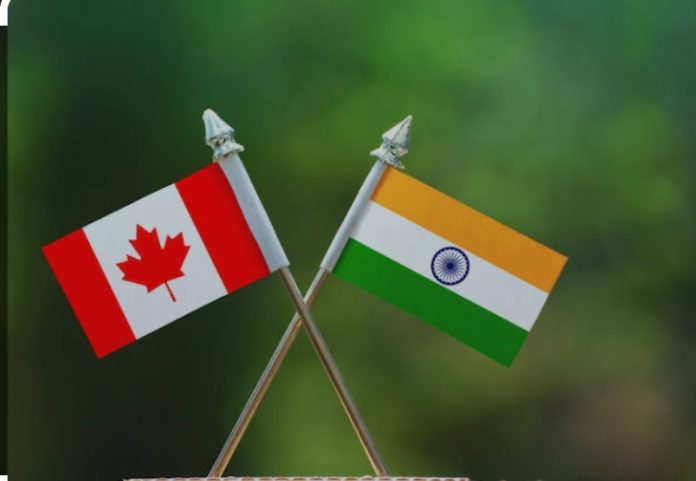As India expelled six top diplomats of Canada and recalled its high commissioner along with other ‘targeted' officials from Ottawa, an already unsteady relationship between the two countries wrecked. Repairing the damage of diplomatic and economic ties may take years since the pro-Khalistani Trudeau government in Canada is rather interested in ‘vote bank' politics. The unfortunate turn of events is fuelled by a communication from Canada on October 13th.
It indicated that Indian High commissioner Sanjay Verma and some other diplomats are under investigation in murder of a Canadian citizen. Though the name of the citizen not mentioned, it was understandably Khalistani activist Nijjar who was shot dead last year.
On Monday evening, India took an immensely strong stand and summoned the Canadian acting high commissioner to New Delhi's south block, saying, “The allegations levelled by Canada are baseless and absurd.” India also announced the recall of its High Commissioner to Canada and other diplomats.

Notice the language in the statement of India's Ministry of Foreign Affairs. It 𝗵𝗮𝘀 𝗳𝗼𝗿𝗺𝗮𝗹𝗹𝘆 𝗰𝗮𝗹𝗹𝗲𝗱 PM Justin Trudeau, 𝗮 𝘀𝘂𝗽𝗽𝗼𝗿𝘁𝗲𝗿 𝗼𝗳 𝘁𝗲𝗿𝗿𝗼𝗿𝗶𝘀𝗺 𝗮𝗻𝗱 𝘀𝗮𝘆𝘀 India 𝗵𝗮𝘀 𝗻𝗼 𝗳𝗮𝗶𝘁𝗵 𝗶𝗻 𝗵𝗶𝘀 𝗴𝗼𝘃𝗲𝗿𝗻𝗺𝗲𝗻𝘁. It blamed Canada for failing to protect Indian diplomats.
“The Canadian Charge d'Affaires was summoned by Secretary (East) this evening. He was informed that the baseless targeting of the Indian High Commissioner and other diplomats and officials in Canada was completely unacceptable,” the MEA said in a statement.
“It was underlined that in an atmosphere of extremism and violence, the Trudeau Government's actions endangered their safety. We have no faith in the current Canadian Government's commitment to ensure their security. Therefore, the Government of India has decided to withdraw the High Commissioner and other targeted diplomats and officials. It was also conveyed that India reserves the right to take further steps in response to the Trudeau Government's support for extremism, violence and separatism against India,” the MEA said after meeting Stuart Wheeler, the Charge d'Affaires of Canada high commission.
After meeting at South Block MEA office, Wheeler responded to media, “Canada has provided credible, irrefutable evidence of ties between agents of the Government of India and the murder of a Canadian citizen on Canadian soil. Now, it is time for India to live up to what it said it would do and look into all those allegations. It is in the interest of both our countries and the people of our countries to get to the bottom of this.”
Upon this, Government of India jolted Canada again. It asked six diplomates of Canada including charge de affairs, Wheeler to leave India by midnight of October 19.
What is the Nijjar Case?
On the evening of June 18, 2023, Hardeep Singh Nijjar was shot dead while leaving a gurdwara in Surrey, Canada. Canadian Prime Minister Justin Trudeau accused the Indian government of being involved in the assassination on September 18, 2023, a claim that India has strongly denied.

On May 3, 2024, three individuals accused of Nijjar's murder, all Indian nationals, were arrested. Canadian authorities revealed that the suspects had been under surveillance for several months. In a press conference on Monday, the Canadian police reiterated these allegations and also accused India of monitoring pro-Khalistani groups in Canada.
Why is the Nijjar issue significant for Trudeau?
Canada is set to hold parliamentary elections in October 2025, and Khalistan supporters are seen as an important voting bloc for Trudeau's party. However, last month, the NDP party, led by Jagmeet Singh, a known Khalistan supporter, withdrew its support for Trudeau's government.
This led to Trudeau's government losing its majority. Despite this setback, Trudeau's Liberal Party survived a confidence vote on October 1, with the support of another party.
According to the 2021 census, Canada's population is 38.9 million, with 1.8 million Indians making up about 5% of the population. Among them, over 700,000 are Sikhs, representing roughly 2% of the total population.
The Way Forward
The Trudeau government's stance appears to be driven by political interests, particularly targeting a specific vote bank. Canada has long been accused of fostering an environment that allows for extremism, with some members of Trudeau's cabinet reportedly linked to separatist and extremist movements against India.
Indians must carefully assess whether Canada's ruling party leans left or right, as both may leverage Khalistani terrorists for political gain.
It is crucial to raise awareness about the dangerous trajectory Canada is on, with the country potentially becoming a haven for extremists, much like Pakistan. This poses a global security threat and calls for collective efforts to combat radicalism.
In response to this diplomatic challenge, India should focus on gathering solid evidence and compiling detailed dossiers to expose Canada's actions, with the aim of pushing for its classification as a state that supports terrorism and undermines global peace.

Ram Kumar Kaushik is a seasoned journalist with over 25 years of experience across mediums. The architect of this news website, he is also a consultant with several media groups. He was formerly the group managing editor of ITV Network (NewsX, India News and The Sunday Guardian) and its digital products.



